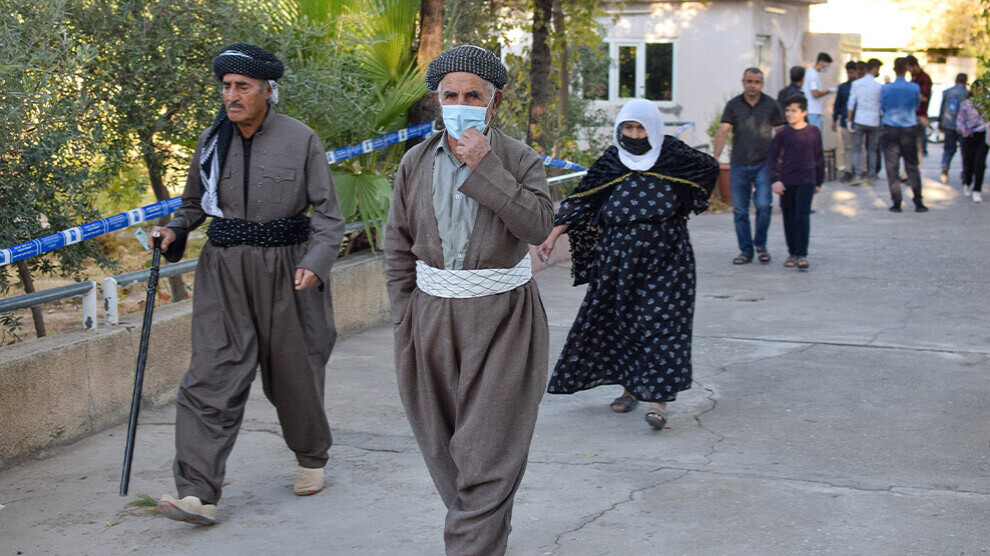Parliamentary election in Iraq
A new parliament is being elected in Iraq. A total of around 25 million people are called upon to determine the 329 members of parliament. A quarter of all seats are reserved for women.
A new parliament is being elected in Iraq. A total of around 25 million people are called upon to determine the 329 members of parliament. A quarter of all seats are reserved for women.

A new parliament will be elected in Iraq on Sunday under heavy security precautions. According to the Iraqi military leadership, more than 250,000 security forces are deployed. In the Kurdish north of the country, units of the Zerevanî special forces are patrolling many places alongside regular peshmerga troops. A total of around 25 million people are called upon to determine the 329 members of parliament. A quarter of all seats are reserved for women. The first results are expected on Monday.
Observers expect a low voter turnout. Many people are disappointed with politics and do not want to vote because they do not expect any change in the balance of power within the existing political system. In the 2018 vote, voter turnout had fallen to a record low of 44.5 percent. Iraq is in a political and economic crisis. Prime Minister Mustafa al-Kadhimi brought the vote forward by several months after mass protests.
The demonstrations that broke out in October 2019, in which mainly young people took part, were directed against the political elite, mismanagement, corruption, poor infrastructure and high unemployment. The protests were bloodily put down. According to human rights organizations, more than 600 people were killed and 30,000 injured. More than 100 people have "disappeared" to date.
Voter turnout higher in southern Kurdistan
In several polling stations, people were unable to vote, sometimes for hours, because the system did not recognize their fingerprints. In southern Kurdistan, there were breakdowns primarily in the regions controlled by the KDP, including in the Yazidi region of Shengal. There, the doors of 21 voting centers were temporarily closed due to "technical problems." Initial interim results from the individual regions indicate in part that voter turnout in the Kurdish areas is higher than in the rest of the country.
In Shengal, the system failed in 21 polling stations